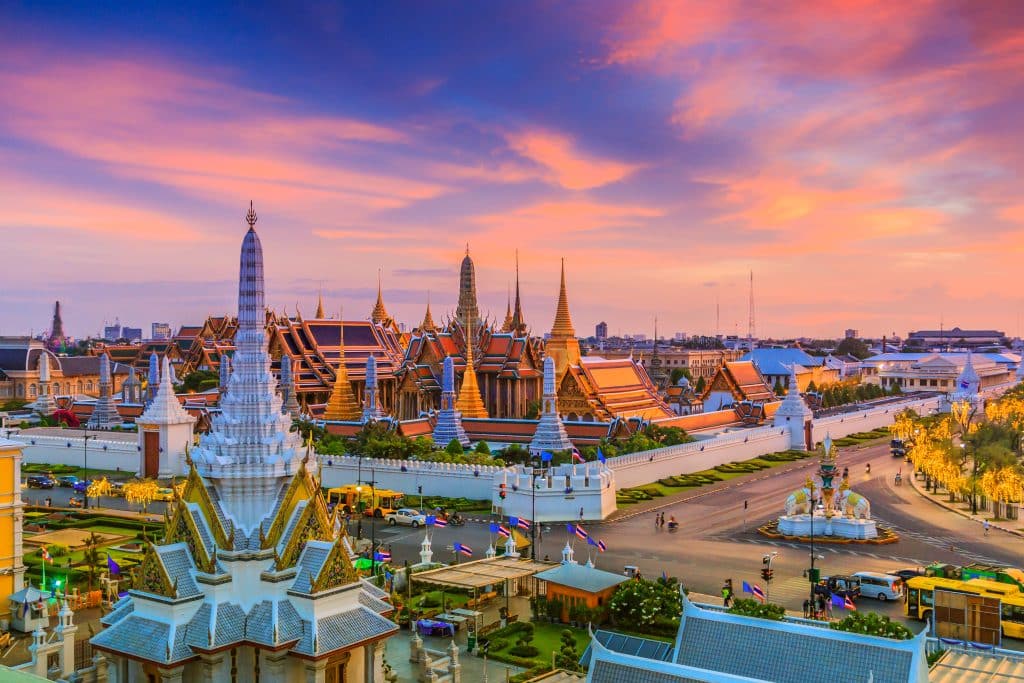Kratom has made headlines once again in Thai newspapers.
For perhaps the first time in their history, the newspapers have something positive to say about it. The government is moving to decriminalize the plant and remove it from the list of scheduled narcotics.
This move will see significant changes to the way that kratom is dealt with. It’s production, processing, and export will likely soon be regulated by the government. Likewise, criminals imprisoned for kratom-related offenses will be released.
Kratom in Thailand: A Quick Background
In May of 2021, the Thai government voted to move kratom off the illegal narcotics list. This was a landmark decision that was reached after kratom users endured many years of strife due to its legal status.
To understand the process of legalizing kratom, it helps to have some background knowledge about Thailand’s drug policy. Elsewise you won’t really understand how kratom is currently classified and how that will soon change.
When Was Kratom Banned In Thailand?
Kratom has been subject to all sorts of rules, regulations, and restrictions since it was made illegal in 1943.
When the Act was first passed, another, somewhat more extreme measure was also implemented. Not only was kratom made illegal to grow, but it also became mandatory to cut down any kratom trees that were seen.
This led to a significant decline in the number of trees throughout the country, the effects of which are probably still felt today.
It wasn’t until more than 30 years later that the substance was properly classified as an illegal drug. In 1979 the plant received a label as a narcotic as defined by the Thailand Narcotics Act and placed it in Category 5, alongside substances like cannabis and psychedelic mushrooms.
People possessing kratom would thus be subject to the same punishments as those possessing other Category 5 drugs: imprisonment for no more than two years and a fine of no more than 40,000 Thai Baht.
Why Was Kratom Banned In Thailand?
The Thai government made this decision for similar reasons as the Food and Drug Administration of the United States is trying to ban the plant today: money.
The government of Thailand controlled the opium trade during the 40s. Escalating opium prices led to an increased number of people quitting, either intentionally or due to financial strain. Many began to look for cheaper alternatives to opium and found kratom.

The result was that the government lost enough profit for them to decide that kratom should be made illegal. Rather than moving to regulate kratom as well, they signed a bill called the Kratom Act that made it illegal to buy, sell, or possess kratom.
Also see: Can You Buy Kratom in Bangladesh?
Why is Thailand Legalizing Kratom?
As a scheduled narcotic, kratom benefits the government in several ways.
- Restricting its use lowers the number of people who would otherwise use it to free themselves from addiction to government-controlled opioids, thus ensuring that they continue paying for these narcotics.
- Thousands of people have been jailed due to kratom possession and use. Incarcerated criminals provide free labor for the country.
- Hefty fines accompanying convictions and charges contribute to government funding.
This change in legislation will erase the convictions of more than 1,000 people and write off the potential criminal charges of nearly 7,000 more people indicted between 2020 and 2021, as kratom has its narcotic status revoked.
So why legalize kratom at all?
1. Growing Dissent Among the Thai Population
Kratom is an important part of Thai culture and history and has been popular for hundreds, if not thousands, of years. For many residents, kratom use was a part of family life that spanned generations before its prohibition.
When it was first made illegal, most of the outrage came from kratom users. Many were struggling with addiction and stood low on the social ladder. Their voices didn’t have much of an impact on either the government or other locals who dismissed them as addicts.
Nonetheless, kratom remained popular due to its fantastic pain-relieving and stimulating properties and its ability to help fight opioid addiction. Its long-standing popularity has encouraged more researchers to participate in its study.
2. Kratom Has Medical Value
Nowadays, as the study of kratom and its various alkaloids expands and our understanding grows deeper, the value of kratom as a medicinal plant becomes more obvious. As much as they may try, politicians cannot stand in defiance of scientific evidence forever.
All across the globe, people are speaking up in defense of kratom. No longer are the only people defending the plant recovering from addiction. Now there are doctors, therapists, and other professionals advocating for its use, and this puts a lot of pressure on the government.
However, the Thai government isn’t one to fold just because of pressure from its people. Like most governments, they would require some sort of financial incentive before putting through any legislation changes.
3. Kratom Has Economic Value For Thailand
Almost immediately after the possibility of legalization was discussed, conversations followed suit regarding the regulation of kratom. The government was quick to outline a plan for regulating, taxing, and profiting from the sale of kratom in the country.
By legalizing the plant, a number of avenues open up through which the government can profit more than they could by enforcing its prohibition.
“This is a move to fully regulate kratom markets, which includes the possibility of the ONCB, the drug control agency here in Thailand, to give licenses for kratom plantations,” said Martin Jelsma, director of the Drugs and Democracy program in Amsterdam, who is currently based in Thailand.
The board also discussed how they could profit from exporting kratom. Under the ONCB, said Jelsma, “kratom plantations [could grow] crops for non-traditional, non-medical and export use.”
The WHO May Ban Kratom Worldwide in 2022
Thailand has chosen a very interesting time to legalize this plant, considering the legal turmoil surrounding its usage throughout the globe. Many countries are first beginning to implement laws regarding kratom; others like Australia are moving or have moved to make it completely illegal.
Globally, Thailand has taken a stronger stance against kratom than any other country. It’s possible that their decision to legalize the controversial herb may have a positive ripple effect that encourages other countries to recognize the folly of making such a valuable plant illegal to possess.
In the United States, kratom laws are divided: some states allow its use, whereas others forbid it.
At the federal level, the Food and Drug Administration (FDA) is actively trying to get the plant banned.
The FDA’s tactics have created a significant response from the American Kratom Association (AKA), a group of kratom consumers and advocates who fight for the legal rights of the plant.
The AKA has thousands of members, and its influence is strong enough that the FDA’s petition to criminalize kratom was rejected due to their persistence. The FDA thus decided to step up its ambitions and attempt to convince the World Health Organization to implement a global ban on kratom.

This is a fairly bold move, and one can’t be sure whether or not they will succeed. However, Thailand’s decision to legalize kratom may work in favor of a positive decision.
Thailand’s transparent approach to their kratom regulation shows that they’re committed to providing people with proper education regarding kratom. The FDA, on the other hand, relies almost exclusively on misinformation and distorting studies.
If the FDA continues to use such techniques, they’ll look quite foolish trying to maintain a case against kratom. Either way, kratom is becoming a hot topic around the globe. The more energy that the FDA dedicates to slandering kratom, the more people seem to come to stand in its defense.
Final Thoughts: Why Thailand Legalizing Kratom is a Big Deal
Thailand has been intentionally harsh against kratom and kratom users for nearly a century.
Recently they recognized their serious misjudgment of the nature of kratom and also concluded that they could make a hefty profit by regulating it. Thus, they moved to legalize it.
This decision comes at a time when kratom is facing a lot of turmoil across the globe. Countries like the United States have their federal drug enforcement agencies attempting to convince the World Health Organization to ban kratom.
Perhaps Thailand’s decision will help to bring positive awareness to kratom. Whatever the case, there’s no doubt that this plant, which only a decade ago was just an obscure ethnobotanical, has made a space for itself on the global stage.





